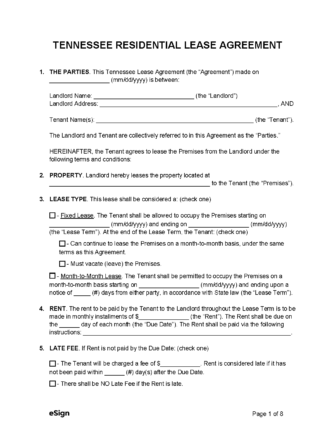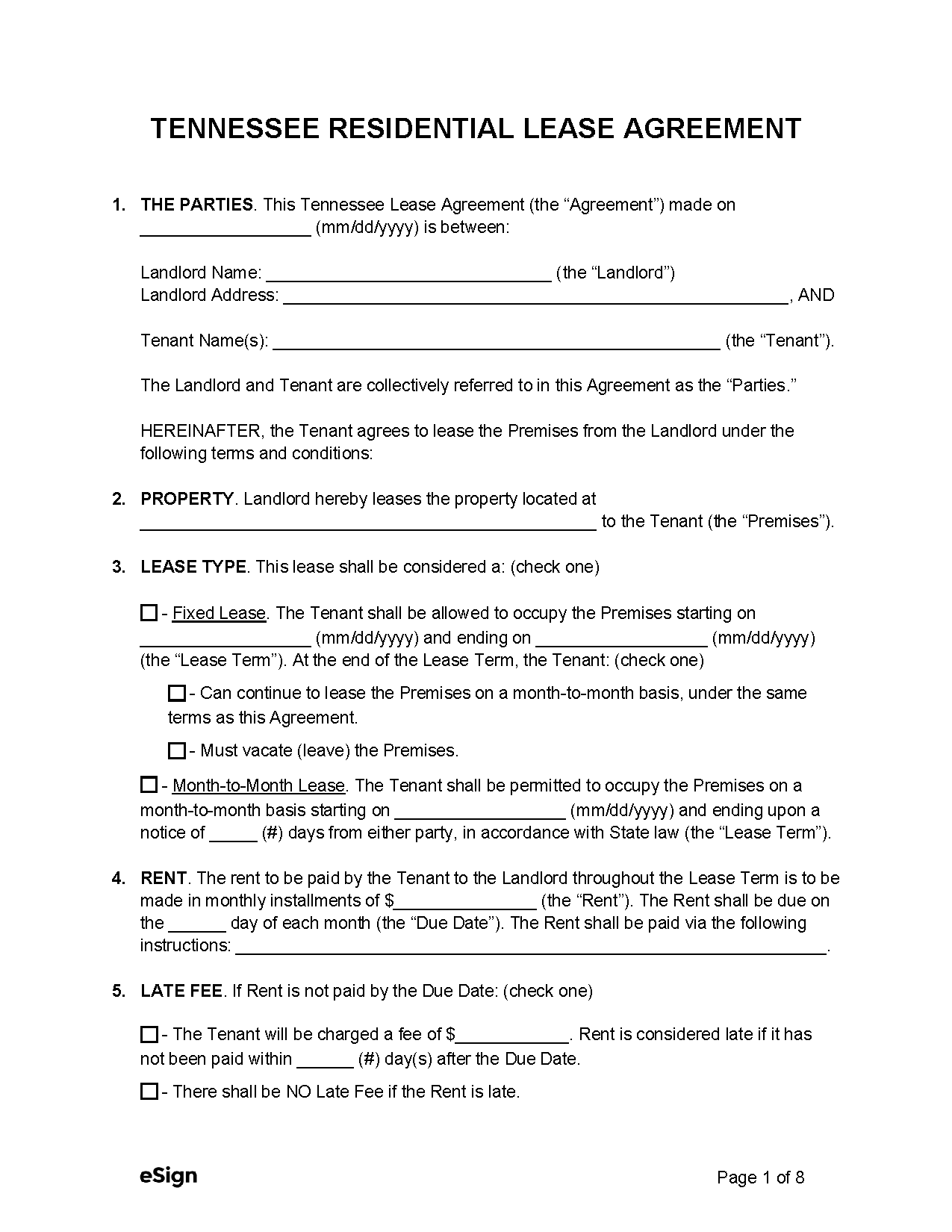
A Tennessee lease agreement is a contract between a tenant and a landlord that defines the terms and conditions of tenancy. Although each lease will vary depending on the landlord’s needs and type of property, the document should outline the length of the term, the rent amount, security deposit details, rules and obligations, and penalties for non-compliance.
A Tennessee lease agreement is a contract between a tenant and a landlord that defines the terms and conditions of tenancy. Although each lease will vary depending on the landlord’s needs and type of property, the document should outline the length of the term, the rent amount, security deposit details, rules and obligations, and penalties for non-compliance.
PDF Download
A Tennessee lease agreement is a contract between a tenant and a landlord that defines the terms and conditions of tenancy. Although each lease will vary depending on the landlord’s needs and type of property, the document should outline the length of the term, the rent amount, security deposit details, rules and obligations, and penalties for non-compliance.
4.6 | 57 Ratings Downloads: 7,896
Rental Application – Landlords should use a rental application form to investigate the background of potential tenants.
Maximum Amount ($) – Tennessee law does not establish a maximum limit for security deposits.
Collecting Interest – The collection and distribution of interest on security deposits is not covered by state law.
Returning to Tenant – If the tenant is owed all or some of their security deposit after moving out, the landlord must notify the tenant and, if the tenant does not reply within 60 days, they forfeit the balance of the deposit. [4]
Itemized List Required? – Yes, a list of chargeable damages must be created if the tenant requests a mutual inspection at the end of their term. [5]
Separate Bank Account? – Yes, security deposits for residential tenancies must be kept in a separate account. [6]
General Access – There is no minimum notice period for landlord entry mentioned in state statutes, but the landlord should obtain the tenant’s consent by providing notice and must not abuse their access privileges. [7]
Immediate Access – The landlord can access the property without consent during emergencies or to inspect for damages if utilities were unexpectedly shut off. [9]
Grace Period – There is a five-day grace period before a landlord can charge a fee for late rent payment (including the day rent was due). [10]
Maximum Late Fee ($) – Maximum fee for late rent payment is 10% of the total rent amount.
Bad Check (NSF) Fee – Landlords may charge $30 to tenants if a rent check bounces due to insufficient funds. [11]
Withholding Rent – It is not mentioned in state statutes whether tenants have the right to withhold rent until landlord’s make necessary repairs.
Non-Payment of Rent – When a tenant hasn’t paid rent, the landlord can send them a 14-day notice stating that they must pay within that timeframe or the lease agreement will terminate. [12]
Non-Compliance – Tenants have 14 days after being served a notice for non-compliance to remedy their violation or the lease will terminate.
Tenant Maintenance – Tenants are required to comply with the following rules [14] :
Lockouts – The landlord cannot prevent a tenant from accessing their rental property. [15]
Leaving Before the End Date – If a tenant vacates the property before the lease terminates, the landlord can recover possession of the dwelling after 30 days have passed without receiving rent payment. [16]
Month-to-Month – A 30-day notice is required to terminate a month-to-month tenancy by either the landlord or the tenant. [18]
Unclaimed Property – Any property left by a tenant must be held for 30 days by the landlord, after which time it can be thrown away or sold if not reclaimed. [19]